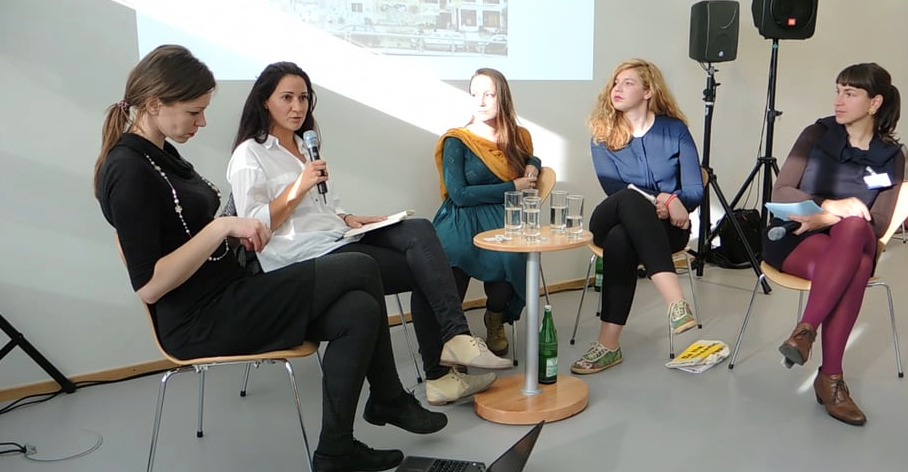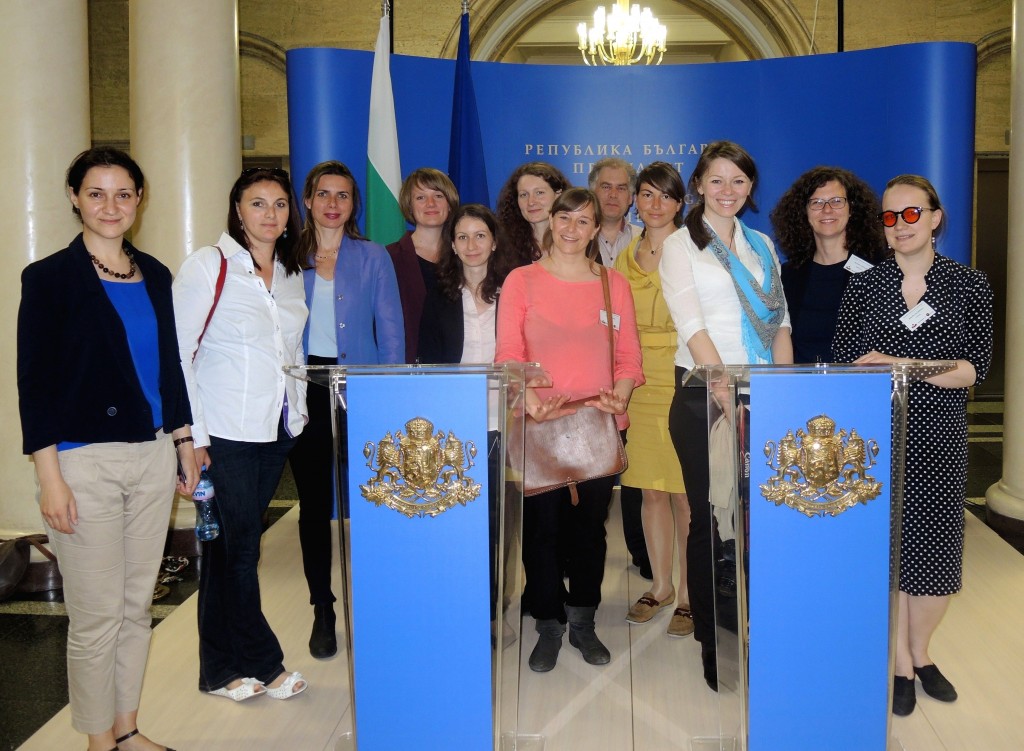POLITICAL TRANSITION
The beginning of the transition period in Croatia can be traced back to January 1990 – 10 years of a gradual dissolving of the socialist state had passed since Tito´s death – when Slovenian and Croatian representatives left the extraordinary 14th Congress of the League of Communists of Yugoslavia before the end. The elections were held soon after, and both Slovenia and Croatia voted for politicians who represented a more autonomous republican option. Slovenia was first to proclaim independence and Croatian followed shortly after, in 1991. There was no formed guerrilla opposition to the socialist system (like in Russia or Ukraine), but it was rather cast off by politicians themselves in both the Croatian and Slovenian case. However, unlike in most of the other countries in transition, the peaceful transition from a socialist system to democracy and market economy in Croatia was abruptly stopped by the Yugoslav Army (JNA) intervention, and a war thus started – with consequences felt until today. It drained the already limited resources, and a functioning army had yet to be formed and equipped (the majority of highly ranked soldiers had stayed in the JNA, which then, in fact, acted as Serbian army with control over the JNA weapon depots, while Croatia was posed under a weapons embargo etc.). On top of those problems, an overwhelming number of refugees from Bosnia and Slavonia arrived to Croatia in 1992, while the economy collapsed, the companies closed down, the workplaces were lost in large numbers, and a major part of the population had to rely on food and commodity supplies by the Red Cross and Caritas. The war period also facilitated illegal operations such as contraband, money laundering, stock manipulation, etc.
When the war ended in August 1995, the actual transition from socialism to democracy just began. Under the leadership of the President Franjo Tudjman, with the traumatic memory of the war and with a destroyed economic and social infrastructure, the transition process was done with little planning, under huge time pressure, and run by a political establishment which had mostly been in position during Socialism as well. A lustration was never even started in Croatia up until today. President Tudjman and his party HDZ (Croatian Democratic Union) stayed in power until his death in December 1999. A new President and a new government were elected in early 2000, with Ivica Racan taking office as Prime Minister. It was him who in 1989 had lead the League of Communists of Croatia to transform into a Social Democratic Party (SDP), whereas the new President Stipe Mesic had been a co-founder of HDZ but had distanced himself from Tudjman during the 1990s. The political shift in the early 2000 also marked the beginning of the collaboration with the International Criminal Tribunal for the Former Yugoslavia (ICTY), a condition for bringing Croatia closer to the EU. In 2003, HDZ won the elections again, with Ivo Sanader as the new Prime Minister. Sanader likewise engaged in bringing Croatia to join EU and NATO, and he continued the collaboration with the ICTY. Under the leadership of Jadranka Kosor (HDZ) as the Prime Minister, Croatia entered the NATO in 2009. In 2012, the government was formed again by the Social-democratic Party. With the Prime Minister Zoran Milanovic in the office, Croatia finally joined the European Union in 2013. The current President is Kolinda Grabar-Kitarovic (HDZ), the first woman in Croatian history in the highest state office.
PLAYERS
Without a pronounced opposition movement during the Yugoslav period, the Croatian transition was led, again, by the politicians who – with few exceptions – mostly had already been part of the political establishment in the Former Yugoslavia. Until today, the political situation keeps fluctuating between the two parties left and right of the center. With its war past, the army and war veterans are a significant factor and a political force in Croatia´s transition process as well. Another crucial group that shaped the transition is the ‘businesspeople’, who were driving and profiting from the privatization. Similar to the other transition countries, the process of privatization in Croatia was widely based on nepotism and clientele structures that provided certain interest groups with chances to buy entire state owned companies for almost no value; poor management, money laundering and racketeering, and eventual bankruptcies are considered the typical features of Croatia´s post-socialist economy (see European Commission Country Report 2015). Last but not least, the Croatian Catholic Church and civil society groups had an impact on the pace and direction of the transition process as well.
NARRATIVE(S)
The transition itself was never contested in the political establishment, since all who were in charge subscribed to the same principles of equal rights and democratic participation, private property, market economy and international integration into Western partnership structures such as NATO and EU. However, it is highly contested whether to consider Croatia´s transition a success story, considering the slow pace of the EU accession process, economic policy failures, GDP and wages developments, youth unemployment rates above 40%, demographic developments and failing political responses, migration movements especially of high-skilled (brain drain), etc. The European Commission stated in 2015: “Also, the low labor market participation of young people contributed strongly to the decline in activity rates. Low labor demand combined with a discouragement effect influenced young workers either to withdraw or not to enter the labor market. Some prolonged their stay in the education system, whereas others contributed to the growing number of not in education, employment or training.”
As a matter of fact, a common narrative about the transition in Croatia does not exist, as well as the narrative about the war, let alone the Yugoslav period. A recent analysis of history schoolbooks and teaching in Croatia in the period from 1991 until 2013 conducted by the European Stability Initiative (ESI) has pointed out that the history teachers tend to address the recent history rather subjectively or completely skip the topic – thus history as a school subject is being approached not from a scientific perspective but as a ‘personal story’. According to ESI until 2000 there was only one ‘nationalist’ textbook, whereas by 2013, the teachers could opt for 4 different textbooks with different approaches to the latest history. ESI concluded that the history books all reflect the ways in which Croatians view themselves, define citizenship, or the relationship with Serbs – and today, there is a choice between four, with varying views and narratives.
VALUES
The value orientations that have shaped the transition period echo the political options on either ends of the spectrum: conservative/Croatian nationalist or liberal/Yugoslav socialist – however, in reality such clear cut ideal-typical categorization never fully applies. Originally conservative values which stress the family as nucleus of society are widely shared across political lines and affiliations, as are liberal and human rights values, such as solidarity and respect towards the Others. Recent crises have been demonstrating this, such as the floods that impacted Serbia, Bosnia and Croatia in 2014, or the current refugee crisis. Although Croatia, according to the census from 2011, remains a Catholic majority state, Croatian society today is highly secularized and increasingly pluralistic.
Although more extremist political options contest some of the minority laws, the Croatian state generally and widely ensures minority rights (ethnic minorities have schools/teaching in their language, street signs in their language together with the Croatian language signs, representatives in local and state level parliaments; different religious education is being provided for; same-sex partnerships are respected as equal, etc.). Thus, basic human rights are being guaranteed, official or structural restrictions to human freedoms prevented. However, there is still place for improvement.
CIVIL SOCIETY
The role of civil society in the transition process was not as pronounced as one would wish. Still there are local NGOs that deal, for example, with the rights of war veterans since the war ended, there are international organizations engaged since the early transition days, such as UN organizations (UNHCR and UNICEF), Amnesty International, and also the Croatian Helsinki Committee for Human Rights, the Green Action, or Caritas Croatia. After the Millennium, Croatia got its first LGBTQ NGO, which points at a high level of human freedoms compared to other transition countries (for example, Russia). Dating a couple of years back, there is a legal organization, called the Legal Clinic, made up of law students who practice all kinds of law pro bono (i.e. asylum law), and help sorting out legal problems. After the EU accession, many organizations appeared to give support to civil society actors in applying for EU projects. Some civil society initiatives today support and go innovative ways of philanthropy, form local partnerships for enhancing transparency in governance, fight against corruption, or strengthening capacities for better implementation of human rights standards.
TRANSITION GENERATION
The generation of transition in Croatia can be considered people born between 1979 and 1991. They share the experience of war shaping their childhood or youth, and they share the same present and future brought on by the transition. The difficulties they are facing are related to the trauma of war, to the post-war experience of poor state organization and lack of modern education, as well as to the lack of labor market opportunities. Many have older siblings, parents or relatives who suffer from PTSD and depression. The transition generation in Croatia is facing the challenges of a globalized market, of innovation requirements which clearly show the disadvantages of a science and education system desperately in need for funds and reforms, which once more point at the poorly managed transition process with inadequate policies that led Croatia to the marginalized state it is in now. The experience of transition is crucial for the ways in which the generation in transition thinks and acts today: it is either apathetic or highly inclined to leave the country rather today than tomorrow. The transition can be considered a default setting from which the transition generation takes its decisions and tries to tackle contemporary challenges.
Rafaela Tripalo / Caroline Hornstein Tomic, Zaklada znanje na djelu
Sources:
ESI: Teaching War; How Croatian Schoolbooks Have Changed and Why it Matters, ESI report, Berlin-Zagreb-Vienna, 2015
European Commission Directorate-General for Economic and Financial Affairs, „Macroeconomic imbalances Country Report – Croatia 2015“ in European Economy, Bruxelles, June 2015




